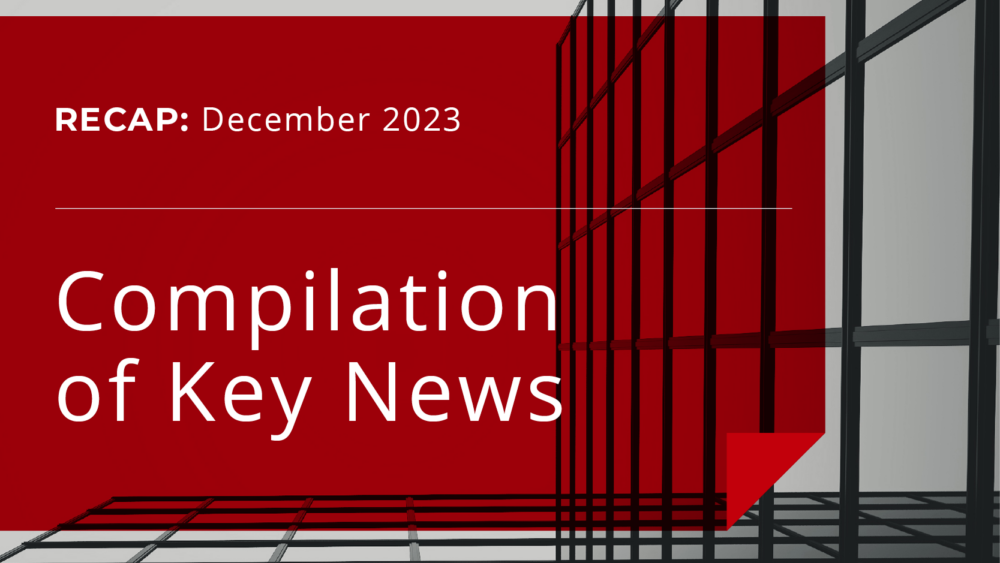From AI tools for the legal profession to psychological risks at the workplace, we bring you a collation of key updates for December 2023.
What AI tools are available for solicitors in Australia?
Generative Artificial Intelligence (AI), led by models like GPT, is fundamentally reshaping the landscape of legal operations in Australia.
Acknowledging its efficiency, a significant 69% of private practice professionals anticipate increased productivity. This advanced AI streamlines critical legal tasks, from research and contract review to drafting, providing solicitors with unprecedented capabilities.
Contrary to misconceptions, the role of AI is not to replace solicitors but to complement their expertise, creating a symbiotic relationship that elevates efficiency. Law firms are strategically integrating AI into workflows, leveraging its benefits of accuracy and enhanced data privacy. As solicitors embrace generative AI, they gain a powerful toolset that not only streamlines routine tasks but also empowers them to provide clients with exceptional legal guidance and services in the dynamic and competitive legal landscape.
Report: Data and tech can be used to manage psychosocial workplace risks
A global workplace survey reveals that only 12% of companies leverage data analytics and technology to manage psychosocial and psychological risks in the workplace. The majority (80%) of organisations in Australia view these issues as safety concerns rather than human resources matters. The report, “Psychosocial and Psychological Risks in the Workplace 2023,” draws insights from senior leaders across Australia’s Top 200 ASX-listed companies, the FTSE 100, and large government agencies. Despite increased awareness of psychological health’s impact on workers, many employers struggle to effectively address these concerns, with significant variations in approaches and responsibilities across sectors and regions.
Furthermore, the survey highlights that nearly 30% of organisations do not report psychosocial risks to senior management or the board. Only over 50% have taken minimal steps to address these risks related to misconduct and safety investigations. In the professional services sector, including law, this figure rises to 60%. Surprisingly, 30% of respondent organisations have designated mental health or wellbeing officers. Such a role is not mandated by legislation or codes of practice in Australia or the UK. While 56% of respondents in Australia reported collaboration between HR and safety teams to manage psychosocial risks, this percentage drops to less than 21% for respondents with primary operations in the UK. The findings underscore a need for a more comprehensive, systems-based approach to address these emerging safety concerns.
Will AI replace lawyers? What to expect in 2024
As AI reshapes the legal sector, concerns about job redundancy persist, but signs indicate it will enhance lawyers’ growth potential. AI-powered automation offers lawyers more time to leverage their expertise. Generative AI serving as a valuable assistant rather than a replacement. Key reasons AI won’t replace lawyers include the need for human oversight to ensure accuracy. Also, it includes freeing up lawyers to add value through strategic work and accelerating professional development by automating routine tasks.
Moreover, the rise of ethical AI presents opportunities for law firms to become industry leaders, setting standards and building trust. Embracing responsible AI with a focus on data security and ethics addresses professionals’ concerns. As AI continues to shape the legal landscape, it is seen as a tool that complements and empowers legal professionals, fostering a future where lawyers can focus on meaningful, client-centric work while AI handles routine tasks.
Parliamentary Joint Committee on Intelligence and Security reviews proposed intelligence reforms
The Parliamentary Joint Committee on Intelligence and Security (PJCIS) has commenced a review of the National Security Legislation Amendment (Comprehensive Review and Other Measures No.3) Bill 2023, addressing recommendations from the 2020 Richardson Review.
The bill focuses on enhancing identity protection for intelligence employees and empowering ASIO, with updates to approval processes for intelligence activities. Notable provisions include requiring ASIO to notify the Inspector-General of Intelligence and Security and granting exclusive powers to the Attorney-General in certain matters. PJCIS invites stakeholder input on the proposed reforms until February 2, 2024.
About Law Image: Law Image is a leading document management company. Founded in 1999 and headquartered in Melbourne, we have offices in Sydney, Brisbane, and Perth. Law Image supports law firms and government departments across Australia with end-to-end legal document management solutions.
For Marketing & Branding enquiries, contact:
Siddhi Chavan (communications@lawimage.com)
Marketing Specialist




Comments are closed.